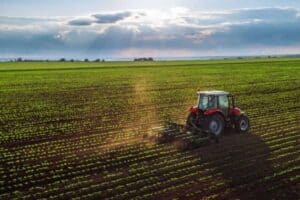The department of agriculture, land reform and rural development is rolling out a smallholder empowerment approach.

Agriculture, Land Reform and Rural Development Minister Thoko Didiza says access to financial services and knowing where to apply is a challenge for women farmers in the agricultural sector.
“The majority of [women in the industry] will tell you how they struggle for production credit at our development financial institutions, as well as our commercial banks.”
In addition to available funding mechanisms such as the Comprehensive Agricultural Support Programme (CASP), Ilima Letsema, Land Development Support, the minister said the department has developed a blended finance instrument working with the department’s development finance institutions and private banks.
Women in agriculture
Didiza made the remarks during a webinar on the role of women in agriculture on Thursday, hosted by the department in partnership with the Government Communication and Information System (GCIS).
She said the issue of access to the market is another area of concern that the majority of women raise as a constraint, as well as extension and advisory services, which are not enough to support the many farmers that the country has, particularly smallholder farmers.
“Government has agreed to add 10,000 extension officers in our agricultural system within a three-year period,” Didiza said.
The minister announced that the department is rolling out a smallholder empowerment approach, a program which enables farmers to understand the market and how it operates.
Horticulture empowerment and promotion
The program also helps farmers understand what is needed by the market in products, quality and volume.
“SHEP (Horticulture Empowerment and Promotion) also changed the mindset of farmers to plant for the market instead of planting or producing and then thinking about the market later. Through SHEP, farmers and buyers are brought together on a platform where they can interact,” Didiza said.
In order to respond to the growing demands of diverse types of foods by consumers, the minister stressed the importance of technology transfer, noting that through the Agricultural Research Council, the department assists farmers with new knowledge and new plant varieties.
“Technology is also critical in mitigating against climate change. Currently, we are developing climate-smart agriculture seeds and farming systems,” she said.
ALSO READ: The right farming can address Africa’s hunger problem
Agro-processing and agribusiness programme
Didiza said the department has started a Women in Agro-processing and Agribusiness programme, to expand women’s knowledge and entry into the agri-business sector.
The department is doing this in order to ensure that support mechanisms for women in the agri-business sector are available.
“The majority of us believe that entry into agriculture is through ownership and access to land. Yes, when it comes to primary production that is true.
“But entry into the industry as a whole can be achieved through our participation at various levels, for instance, we can source commodities from those who produce for processing,” the minister said.
The department is this year piloting a programme with 100 women who have already entered the agro-processing space. The intention is to incubate the women enterprises so they can become sustainable and grow.
“This pilot will ensure that we learn from our interventions as well as from the women themselves. At the end of the pilot we can then roll out at scale,” Didiza said.
Logistics and transport system in agriculture
The minister noted that the movement of goods from farms to the market, both locally and abroad, is another market entry point which women need to look at.
“It doesn’t mean that if you want to be in the agricultural sector, you only need to be a farmer, but you can be in the logistics industry. You can be in the distribution centres, and you can also participate in the cold storage and grain storage facilities,” the minister said.
These are the areas the department wants to entice women to participate in.
“We are currently working on the Agriculture and Agribusiness Master Plan and we want to make sure that the issue of gender parity is engrained in the master plan, because we know that women are part and parcel of our society, economies and entire livelihoods, and if we live women behind, our society will not progress,” Didiza said.
NOW READ: Q&A: Get to know the farmer and TV presenter, Kamohelo Bombe






